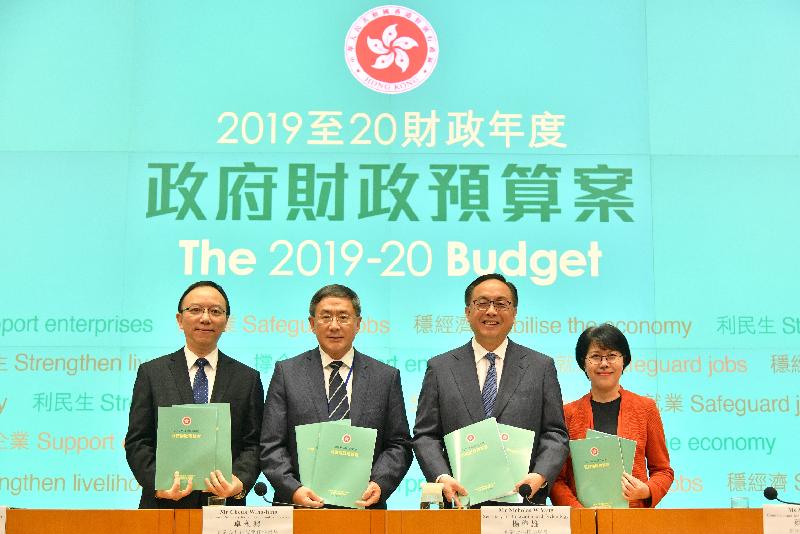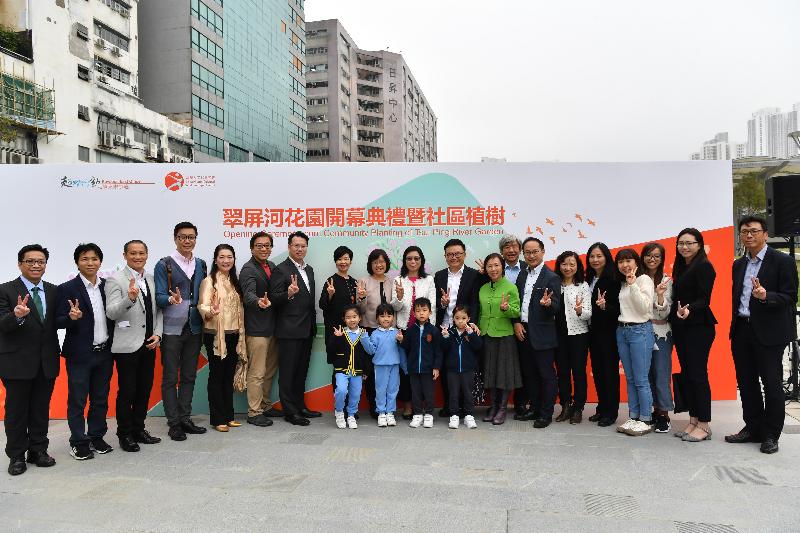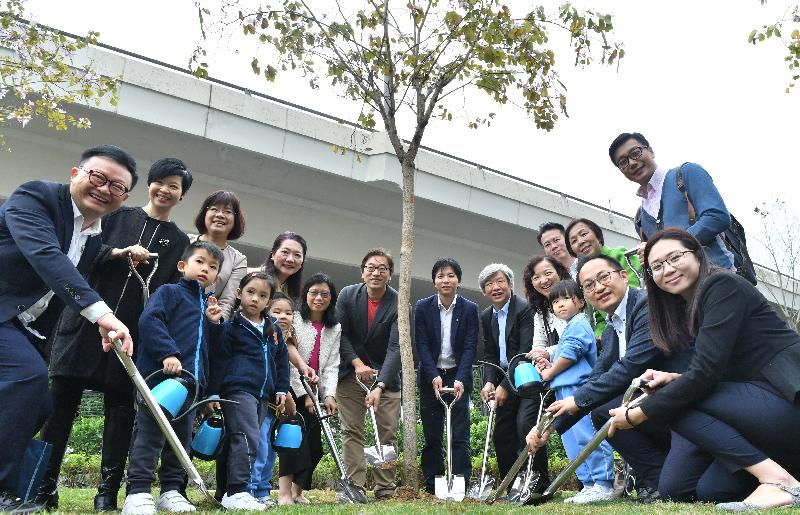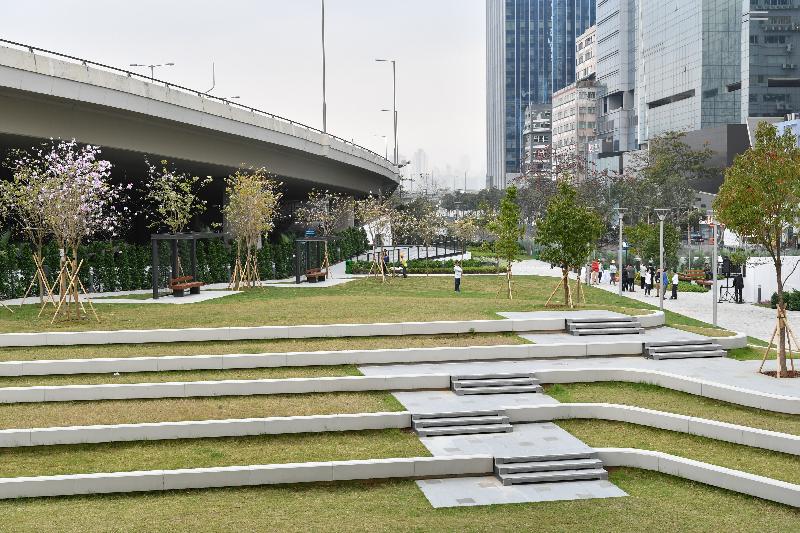Following are the opening remarks by the Secretary for Innovation and Technology, Mr Nicholas W Yang, at the press conference on innovation and technology (I&T) initiatives in the 2019-20 Budget today (March 1):
Welcome to today's press conference. I would like to make a brief introduction first, before opening the floor to questions.
A vibrant ecosystem is essential for the development of innovation and technology. The various initiatives launched by the Innovation and Technology Bureau (ITB) since its establishment in late 2015 have been aiming at perfecting the I&T ecosystem in Hong Kong. In the past three years or so, through the initiatives on various fronts including building I&T infrastructure, promoting research and development (R&D), pooling and training I&T talent, supporting technology enterprises and promoting re-industrialisation, we have greatly enhanced our I&T ecosystem.
On I&T infrastructure, Stage 1 of the Science Park Expansion Programme, Data Technology Hub and Advanced Manufacturing Centre in the Tseung Kwan O Industrial Estate will be progressively completed between this year and 2022. We are working at full steam for the Advance Works of the Hong Kong-Shenzhen Innovation and Technology Park in the Loop. Our target is to make available the first batch of land parcels by 2021 or earlier for superstructure construction.
On promoting R&D, the super tax deduction for qualifying R&D expenditure had been implemented in 2018/19 financial year. In addition, we have earmarked $10 billion to establish two research clusters at the Hong Kong Science Park, with a view to attracting overseas and Mainland top-notch R&D institutions to undertake collaborative research with our local institutions in Hong Kong. A number of world-renowned institutions have already expressed interests in joining the clusters and collaborating with universities in Hong Kong.
On pooling and training talent, we launched the Technology Talent Admission Scheme and the Technology Talent Scheme last year to attract non-local talent and nurture local talent. The Hong Kong Science and Technology Parks Corporation (HKSTPC) is building the InnoCell adjacent to the Science Park for completion by 2021 or earlier. This will provide technology talent with suitable space for living and exchange.
In order to support technology enterprises, we have set up the $2 billion Innovation and Technology Venture Fund to co-invest in local I&T start-ups with partner venture capital funds. We have also injected additional funding to HKSTPC and Cyberport respectively in 2018 for enhancing support to their tenants and incubatees.
On promoting re-industrialisation, we plan to set up a $2 billion Re-industrialisation Funding Scheme within this year to subsidise manufacturers, on a matching basis, to set up smart production lines in Hong Kong. We will also provide another $2 billion to HKSTPC for developing dedicated facilities required by the advanced manufacturing sector in our industrial estates.
In the Budget announced two days ago, an additional $6 billion will be invested for I&T development through providing hardware facilities, training talent and enhancing existing initiatives. I shall briefly introduce the relevant measures.
First, the Budget earmarked a provision of $5.5 billion for constructing Cyberport 5 to provide a gross floor area of 66 000 square metres, including office, co-working space, multi-functional hall and data services platform. The expansion will attract more quality technology companies and start-ups, and provide a platform for young people to pursue a career in I&T.
In addition, we will deploy $500 million to implement the IT Innovation Lab in Secondary Schools Programme, providing funding to 500 publicly funded secondary schools in Hong Kong to set up IT innovation labs. Each school may apply a maximum of $1 million in the coming three school years to procure information technology equipment and professional services such as cloud service, and organise IT-related extra-curricular activities, thereby promoting the interest of our young people in information technologies such as big data analytics and blockchain as well as other technology areas starting from their secondary school years.
We will also enhance the Researcher Programme (formerly known as the Internship Programme) and the Postdoctoral Hub Programme. Specific measures include increasing the monthly allowance for researchers and extending the maximum engagement period for the two programmes from two years to three years.
Lastly, we will regularise the Technology Voucher Programme and introduce enhancement measures, including doubling the funding ceiling to $400,000, expanding the eligibility to cover statutory organisations and locally incorporated companies currently exempted from business registration, increasing the maximum number of approved projects from three to four, and streamlining application and monitoring procedures. These measures will incentivise more local companies and institutions to use technology to improve efficiency and services.
Developing I&T can bring huge economic benefits to Hong Kong. I&T can nurture new industries and create wealth, drive the transformation and upgrading of the overall economic structure, bring quality job opportunities for young people and improve the quality of life of our citizens. We will continue to develop I&T along the eight major areas set forth by the Chief Executive in her Policy Address, and continue to enhance Hong Kong's I&T ecosystem.
Last but not least, I call upon everyone to continue to support ITB's work. Thank you very much.





